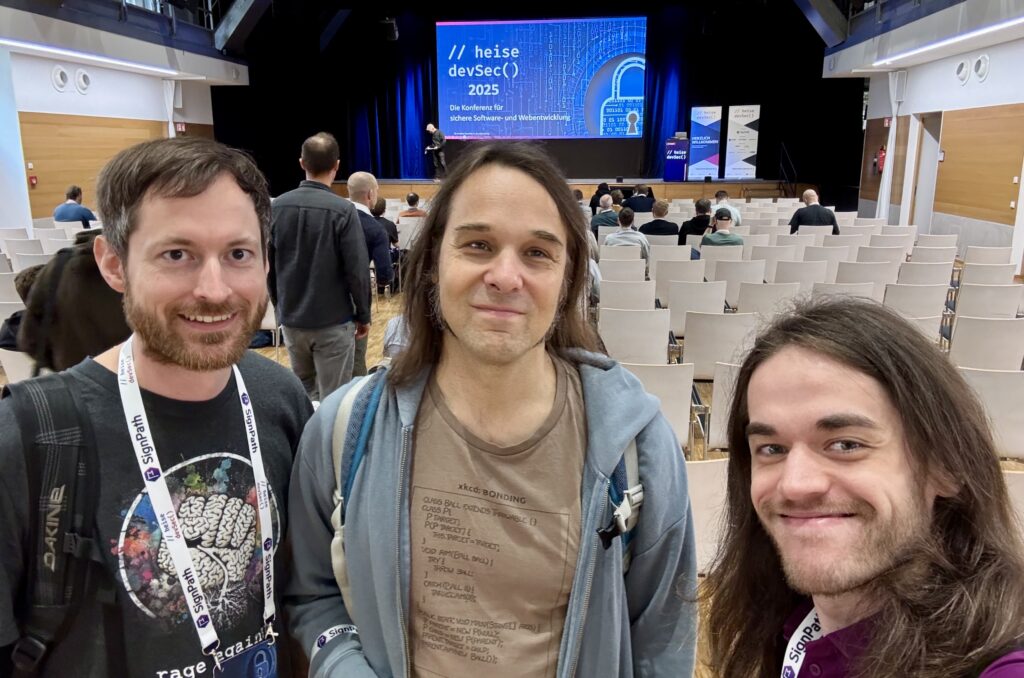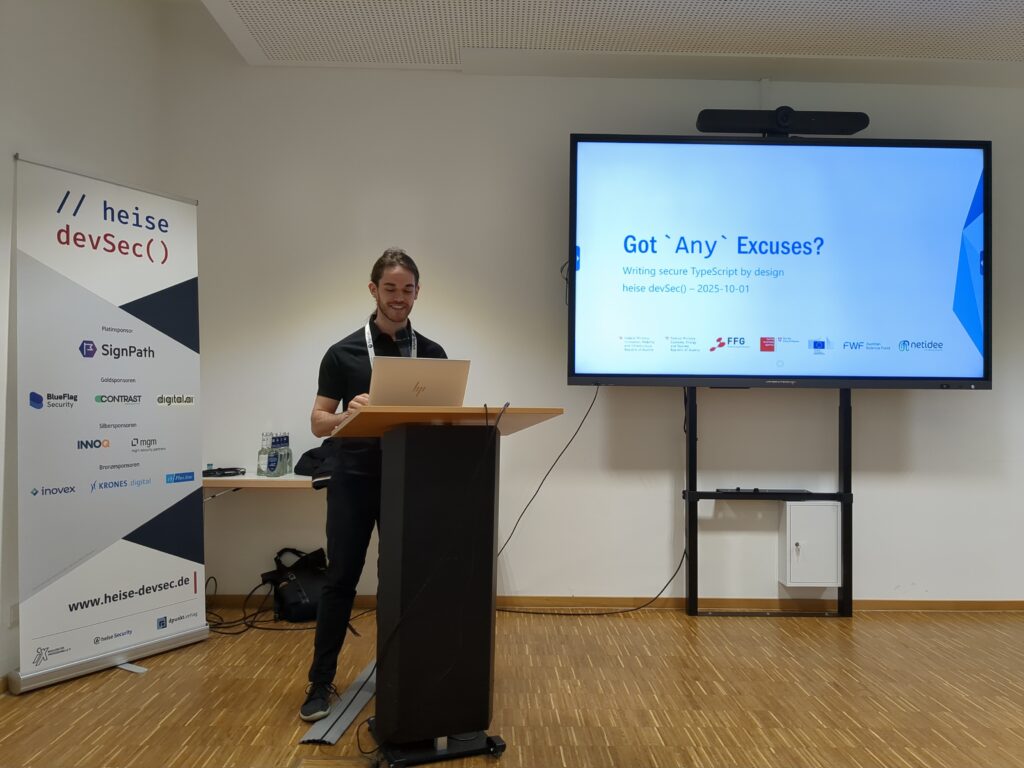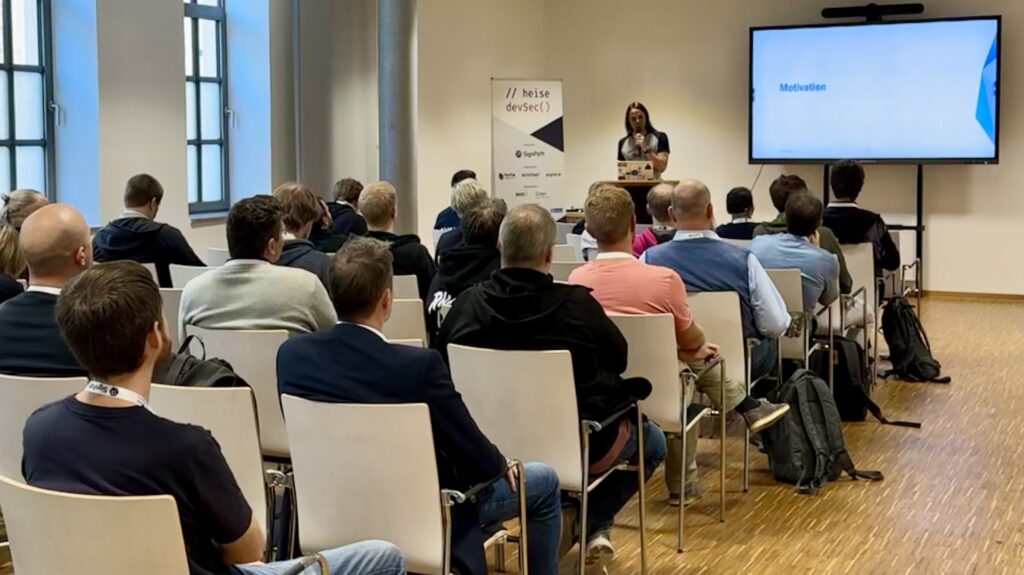SBA @ heise devSec()
Our colleagues Michael Koppmann, senior information security consultat at SBA Research, and Mathias Tausig, information security consultant at SBA Research Research gave two insightful talks on Got Any excuses? Wie man sicheren TypeScript-Code erzwingen kann and Das TPM und Du: Wie man das TPM tatsächlich verwenden kann on October 1st at the heise devSec() conference in Regensburg, Germany.
Abstracts
Got Any excuses? Wie man sicheren TypeScript-Code erzwingen kann
Although TypeScript is becoming increasingly popular, many projects still suffer from security issues that are more typical of JavaScript. This happens because the complexity of TypeScript is introduced into development without fully leveraging its advantages.
In this talk, Michael explores how security in TypeScript can be enforced through design decisions. He discusses compiler flags and covers lesser-known patterns from functional languages, such as sum types and pattern matching, which enable writing more robust code.
Practical examples in TypeScript demonstrate how security aspects can be shifted into the type system so that the compiler can enforce them.
Das TPM und Du: Wie man das TPM tatsächlich verwenden kann
It is often said that cryptography is the science that turns any security problem into a key management problem. But what if we could make life a bit easier here?
TPMs (Trusted Platform Modules) have been a standard component of every PC for many years, providing all users with “free” cryptographic hardware. These modules are already used extensively—though mostly hidden—by our operating systems and firmware, but they have found little application in userspace so far.
This talk explains the capabilities of a TPM and, above all, how you can make use of it in your daily work.



© Mathias Tausig, Michael Koppmann
About the conference
heise devSec() has been the most important German-language training and networking event for software developers and software architects who are responsible for the security of the software they develop.